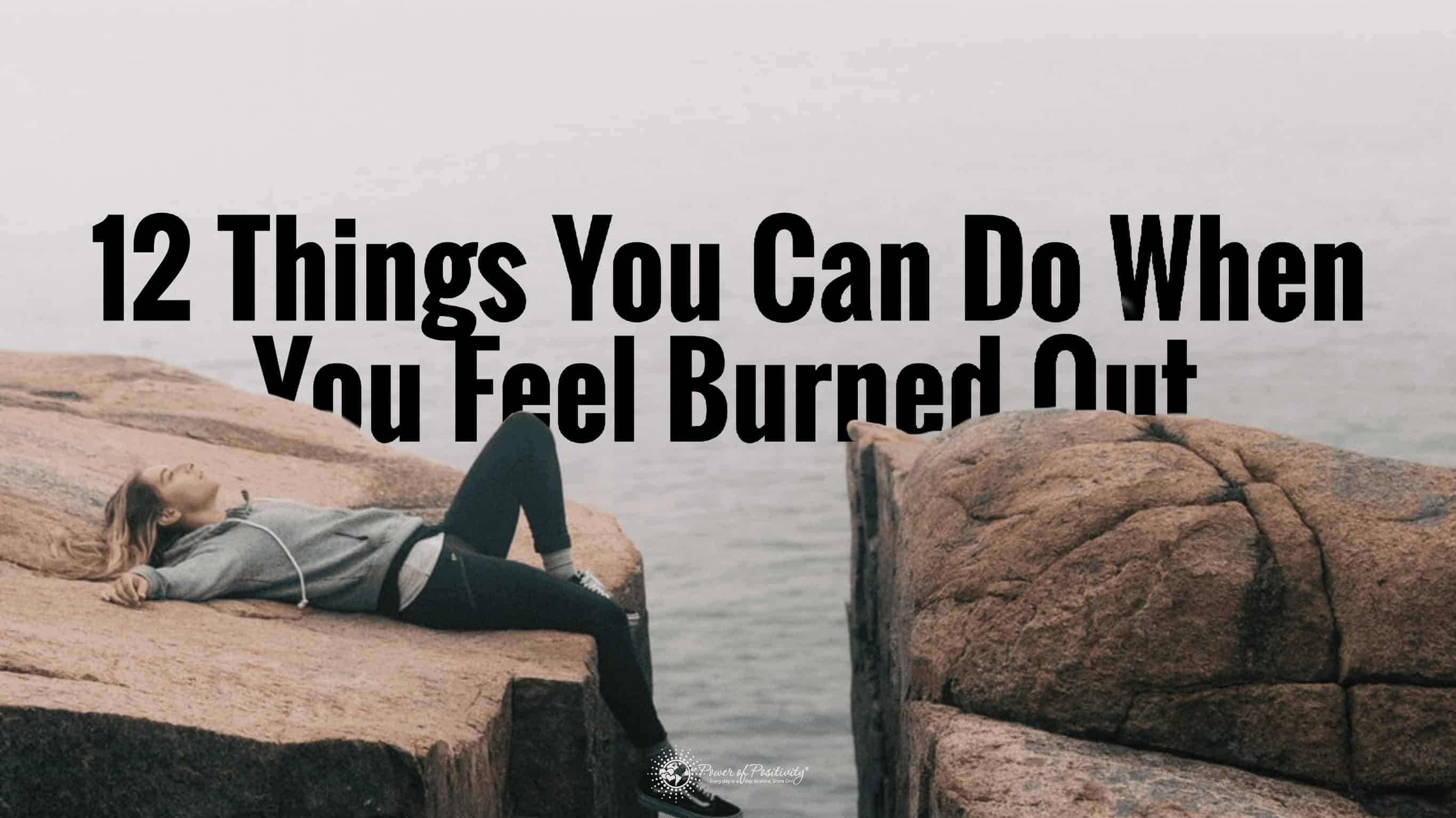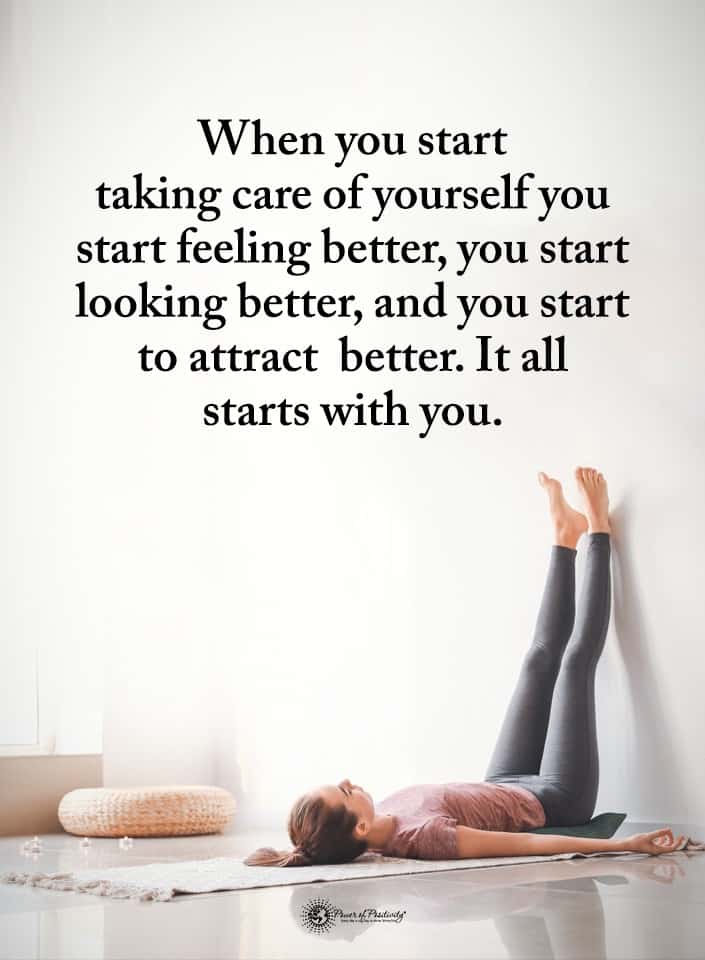A stressful lifestyle can push you to the point of exhaustion and burnout. You may be overworked, under financial pressure, or have a lot going with your family. When life’s pressure mounts to its tipping point, and you feel so burned out that you cannot take much more, what should you do?
Who struggles with burnout and exhaustion?
You’re not alone in how you’re feeling. In fact, feeling burned out can affect anyone-celebrities, stress-driven career people, overworked employees, or homemakers. Exhaustion and burnout are not necessarily a sign of disease but a reaction to stress in your life.
How do you know if you’re exhausted and burned out?
Here are some basic questions to ask yourself to assess if you’re burned out and exhausted. Ask yourself:
- Do you lack the energy to be productive?
- Are you finding it hard to concentrate?
- Are you becoming irritable with your customers or co-workers?
- Do you feel disillusioned about your job?
- Are you having a hard time getting up to go to work?
- Are you using drugs, food, or alcohol to feel better or numb your feelings?
- Do you have insomnia?
- Are you suffering from headaches or stomach problems?
Twelve things to do when you’re feeling exhausted and burned out
Are you ready to learn how to release your stress? Try these tips.
1 – Evaluate your schedule to avoid becoming burned out
Take a look at your weekly schedule to see how you spent your time. Write down what you did and for how long you did it. Next to the activity, add a number from one to ten. Number one, if you felt depressed doing it, or the number ten, if you felt happy and more energized doing it. As you evaluate your weekly activities and how they make you think, you’ll get a good indication of where the stress is coming from. As you assess your life, find out if there is a way to limit doing the tasks that cause stress and adding more activities that make you feel energized.
2 – Start saying no
You may find it hard to say no to things you’re asked to do. This inability to decline a request can lead to burnout and exhaustion. Begin to practice saying no to things that cause stress. People may not understand, but that’s okay. You know what you can take on and what you can’t. So, stand firm and don’t be afraid to say no.
3 – Schedule relaxation to avoid burnout
You probably schedule work meetings, medical appointments and your kid’s playtimes with their friends. But, do you schedule time to relax? Burnout occurs if you work non-stop without a break. Your body and mind need time to rest. In fact, researchers found that if you’re learning a new skill, taking short breaks improves your ability to learn. Rest actually strengthens your memory. Whether you go for a long walk, read a book, or hang out with friends, schedule relaxation for your week.
4 – Get rid of your FOMO
Fear of missing out or FOMO can exacerbate your burnout and exhaustion. If you struggle with feeling that other people have better experiences, are more successful at work, and live better than you, you’ve probably fallen victim to FOMO. Constantly feeling as if you’re missing out can have adverse effects on your mood and life. Social media can encourage your sense of feeling left out when you see other people accomplishing so much, traveling to fun places, or having a beautiful home. Symptoms of FOMO include
- Face paced lifestyle
- Always saying yes
- Not satisfied with your life
- Feeling left out or excluded
- Worried what people think of you
- Need to be around a lot of people
- Experiences are attractive to you
- You feel as if you can’t fully commit because something better may show up
If you think you’ve fallen prey to FOMO, take time to re-evaluate your life and what’s important to you. Take a break from social media sites that offer you non-realistic views of life.
5 – Cultivate joy in your life
Similar to taking time to relax, you need to find ways to make your life more enjoyable. Whether this is a hobby, a book club, or something else, find time to enrich your life. Burnout and exhaustion occur when you do nothing but stay home caring for your kids or working all the time. It would be best if you had time to explore so you can grow and enhance your life.
6 – Get enough sleep to offset feeling burned out
A lack of sleep causes health problems, including exhaustion and burnout. While you sleep, your brain is creating new pathways to help you learn and remember things. A good night’s sleep helps you pay attention, be creative and make decisions. Sleep deficiency disrupts your ability to problem solve, control your emotions, and your ability to cope. It’s linked to depression and suicidal tendencies. Generally, doctors advise that adults should sleep seven to eight hours a night. Here are some ways to get better sleep.
- Keep a regular bedtime routine and time
- Allow time to unwind before bedtime
- Remove blue lights of your computer or phone from your room
- Be sure your room is dark
- Don’t eat close to your bedtime
- Don’t consume caffeine late in the day
7 – Get help
If you’re struggling with burnout and exhaustion, you must get help from others. You may worry about what people will think of you. This hesitance is usual, and not everyone will understand. Be careful with whom you share your feelings. It may be wise to tell only your most trusted friends. If you’re struggling with your job, it may be time to talk with your employer. Many companies have an employee assistance program that offers services like counseling. Your mental and physical health is essential, and you deserve to get the care you need.
8 – Make exercise a priority
Regular exercise has so many health benefits for both your mind and body. When you exercise, your heart rate increases, pumping oxygen to your brain, which improves your mood. Other benefits of exercise include
- Better memory and brain function
- Better weight management
- Lower blood pressure
- Better heart health
- Better sleep
- Reduces your anxiety and tension
- Protects you against chronic illnesses
- Fights cancer-related fatigue
Regular exercise can strengthen your muscles, deliver oxygen to your tissues, and help your cardiovascular system work better. Better heart and lung health help you tackle your life.
9 – Practice mindfulness
Mindfulness is when you focus on what’s going on around you, using your senses and feelings. It’s controlling your breathing and relaxing at the moment. Practicing mindfulness can help you slow down and detach from the stress going on around you. Regular yoga may help you learn to incorporate mindfulness into your life. Being mindful of what stresses you is an excellent way to deal with feeling burned out and exhausted.
10 – Delegate work if you feel burned out
Do you feel like you must do everything? This attitude could be contributing to the fact that you feel exhausted and burned out. There are many reasons why people can’t or won’t delegate. These include
- Things won’t get done “correctly.”
- Too high expectations
- Don’t trust others
- Worry about what others will think of you
- Don’t see the importance of delegating
- Do not value others’ help
- Value the results over value for others
- Fear of failure
- Attached to your habits
If you don’t like to delegate, it may be time to start. Learn to pass off things to others. You’ll benefit from the extra help, and they’ll learn to have a new responsibility.
11 – Cut yourself some slack
If you’re struggling with feeling exhausted and burned out, you need to show yourself a little love. Don’t be too hard on yourself. You may be feeling like you’re a failure or lost direction in your life or that you’ll never be able to reach your goals. If you’re burned out, you probably pushed yourself too hard. Take time to heal and get healthy so you can begin to get back into life.
12 – Make sure you’re not sick
If you’ve been feeling exhausted and burned out for a while, it may be time to see your doctor for a check-up. Your symptoms of fatigue and feeling overwhelmed could be a result of a medical condition. Illnesses that cause exhaustion and overwhelming include the following:
- Anemia
- Underactive thyroid
- Sleep apnea
- Chronic fatigue syndrome
- Diabetes
- Allergies
- Liver disease
- Lung disease
- Bacterial infections
- Fibromyalgia
- Mononucleosis
- HIV
- Heart disease
Your doctor can run various tests to rule out medical reasons for how you’re feeling.
Final thoughts on Overcoming Feeling Burned Out.
Feeling exhausted and burned out can be overwhelming. Hopefully, these suggestions will help you get to the root of what’s going on and help you begin to find relief. Remember, you’re not alone. Many people are struggling with similar feelings. These feelings don’t define you. As you learn how to cope with the stresses in life, you may find that your life is enriched. These difficulties can help you grow empathy and understanding for others who struggle with feeling the same way.

















 Community
Community

